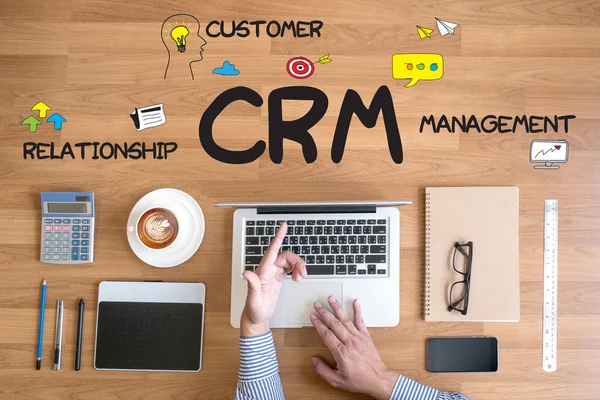Exploring CRM Software: Revolutionizing Customer Relationships

Customer Relationship Management (CRM) software has emerged as a cornerstone tool for businesses looking to streamline their interactions with customers, enhance customer satisfaction, and drive revenue growth. In today&8217;s competitive landscape, where customer experience reigns supreme, CRM software plays a pivotal role in helping organizations manage their relationships with customers effectively. In this comprehensive exploration, we delve into the world of CRM software, examining its features, benefits, and impact on businesses of all sizes.
At its core, CRM software is a technology solution designed to centralize and automate customer-related activities, such as sales, marketing, and customer service. By consolidating customer data from various touchpoints into a single database, CRM software enables businesses to gain insights into customer preferences, behavior, and interactions across multiple channels. Key components of CRM software include:
Contact Management: CRM software allows businesses to store and organize customer contact information, including names, addresses, phone numbers, and email addresses, in a centralized database. This enables sales and marketing teams to access up-to-date customer data and engage with leads and prospects more effectively.
Sales Automation: CRM software streamlines the sales process by automating repetitive tasks such as lead scoring, opportunity management, and sales forecasting. By providing sales teams with tools for pipeline management, activity tracking, and performance reporting, CRM software empowers them to close deals faster and drive revenue growth.
Marketing Automation: CRM software helps marketers deliver targeted and personalized campaigns by automating key marketing activities such as email marketing, lead nurturing, and campaign tracking. By segmenting audiences, tracking engagement metrics, and analyzing campaign performance, CRM software enables marketers to optimize their marketing efforts and generate qualified leads.
Customer Service Management: CRM software facilitates seamless communication and collaboration across customer service teams, enabling them to resolve customer inquiries, issues, and complaints more efficiently. With features such as ticketing systems, knowledge bases, and customer portals, CRM software helps businesses deliver exceptional customer experiences and build long-lasting relationships.
Analytics and Reporting: CRM software provides robust analytics and reporting capabilities that allow businesses to track key metrics such as sales performance, customer satisfaction, and marketing ROI. By generating customizable reports and dashboards, CRM software empowers organizations to make data-driven decisions and identify areas for improvement.
Benefits of CRM Software
CRM software offers numerous benefits for businesses seeking to optimize their customer relationships and drive growth:
Improved Customer Relationships: By centralizing customer data and providing insights into customer preferences and behavior, CRM software enables businesses to deliver more personalized and relevant experiences, thereby enhancing customer satisfaction and loyalty.
Increased Sales Efficiency: CRM software automates manual sales tasks, streamlines the sales process, and provides sales teams with the tools they need to prioritize leads, track interactions, and close deals more effectively. This leads to increased sales efficiency and productivity.
Enhanced Marketing Effectiveness: CRM software enables marketers to deliver targeted and personalized campaigns, track campaign performance, and measure ROI more accurately. By segmenting audiences, nurturing leads, and analyzing engagement metrics, CRM software helps marketers optimize their marketing efforts and generate higher-quality leads.
Better Customer Service: CRM software helps customer service teams manage customer inquiries, issues, and complaints more efficiently, leading to faster response times, improved resolution rates, and higher levels of customer satisfaction.
Centralized Data Management: CRM software centralizes customer data from various sources, such as email, phone calls, social media, and website interactions, into a single database, providing a 360-degree view of the customer. This enables businesses to gain deeper insights into customer behavior and preferences and make more informed business decisions.
Best Practices for CRM Implementation
While CRM software offers significant benefits, successful implementation requires careful planning, strategic execution, and ongoing optimization. Some best practices for CRM implementation include:
Define Clear Objectives: Clearly define your objectives and goals for implementing CRM software, whether it&8217;s improving sales efficiency, enhancing customer service, or increasing marketing effectiveness. Align your CRM strategy with your broader business objectives to ensure success.
Choose the Right Software: Select a CRM software solution that meets your specific needs, requirements, and budget. Consider factors such as scalability, ease of use, customization options, integration capabilities, and customer support when evaluating CRM vendors.
Provide Adequate Training: Ensure that your employees receive adequate training and support to use the CRM software effectively. Provide training sessions, user manuals, and ongoing support to help employees understand the features and functionalities of the CRM software and maximize its value.
Customize and Configure: Customize and configure the CRM software to align with your unique business processes, workflows, and terminology. Tailor the software to meet the specific needs of your sales, marketing, and customer service teams, and ensure that it reflects your brand identity and values.
Data Quality and Security: Pay close attention to data quality and security when implementing CRM software. Ensure that customer data is accurate, up-to-date, and compliant with data protection regulations such as GDPR. Implement robust security measures to protect sensitive customer information from unauthorized access or data breaches.
Conclusion
In conclusion, CRM software has become an indispensable tool for businesses looking to manage their customer relationships more effectively, streamline their operations, and drive growth. With its comprehensive features, benefits, and capabilities, CRM software empowers organizations to centralize customer data, automate key business processes, and deliver exceptional customer experiences across all touchpoints. By following best practices for CRM implementation and optimization, businesses can unlock the full potential of CRM software and achieve their business objectives in today&8217;s competitive marketplace.
